Peru Stares Into the Abyss
Political violence batters the Andean country more than a month after the fall of its president.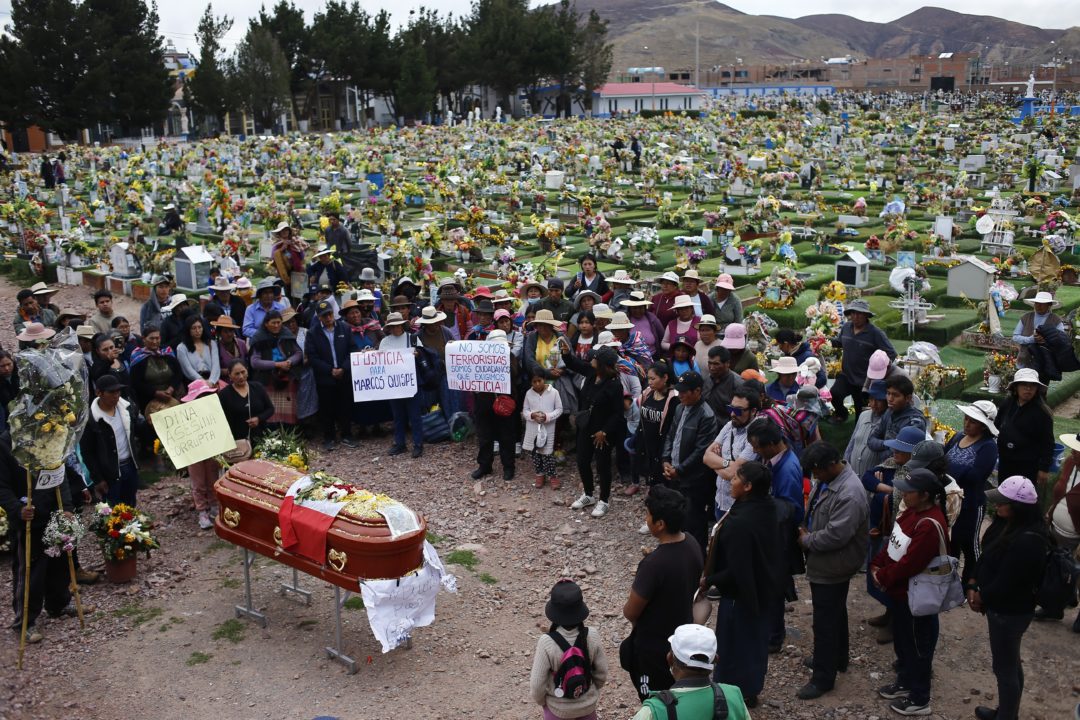 Mourners prepare to bury Marco Quispe, 54, killed during clashes with police, at the cemetery in Juliaca, Peru, Thursday, Jan. 12, 2023. (AP Photo/Hugo Curotto)
Mourners prepare to bury Marco Quispe, 54, killed during clashes with police, at the cemetery in Juliaca, Peru, Thursday, Jan. 12, 2023. (AP Photo/Hugo Curotto)
In the last few days, the political crisis in the South American nation of Peru, on the boil for a month, has increased in severity and shows little sign of abating. Since early December, dozens of people, including minors, have been killed in roiling violence across the country, and hundreds more, including civilians and police, have been injured.
The crisis began in earnest last month following the fall of then-president Pedro Castillo. Since he assumed office in July 2021, Castillo’s presidency had been marked by chaos even by Peru’s rather dramatic standards (the nation has had six presidents in the last five years). Initially elected on the ticket of the Peru Libre party — an entity founded by former governor of Junín Department, Vladimir Cerrón, who had been criminally convicted of corruption — Castillo subsequently distanced himself from his patron, resigning from the party and writing that he had “responsibility as president of 33 million Peruvians.”
Castillo’s choices for prime minister brought their own tumult. His first choice, the economist Guido Bellido, had a social media history that was revealed to be rife with misogyny, homophobia and defense of corrupt cronies. Bellido lasted only three months in the role, while his replacement, attorney Mirtha Vásquez, lasted only four. Her successor — former congressman Héctor Valer — was denounced by his wife and daughter for alleged physical abuse and resigned after one week on the job, and his successor, lawyer Aníbal Torres, was known for enthusiastically praising the “economic policies” of Adolf Hitler.
By this past August, Peru’s electorate was so disenchanted that, though 65% of them said they wanted new general elections, 47% believed that even with a new vote everything would remain the same or get worse. In October, after arresting five of the president’s former advisors, Peru’s attorney general accused Castillo of running an organized crime ring.
All of this came to a head on Dec. 7 when Peru’s Congress moved to impeach and remove Castillo — the third attempt to do so by the body, which is dominated by Castillo’s right-wing adversaries (and which has an approval rate of 11%), since he took office. Castillo responded by attempting to dissolve the body and much of the judiciary. It was similar to the actions then-president Alberto Fujimori took in 1992, when he dissolved Congress and Peru’s judiciary with backing of the military. [Castillo had defeated Fujimori’s daughter, Keiko Fujimori, in the elections that made him president].
Castillo did not have the backing of the military, however, and the self-coup failed, with Castillo arrested while attempting to flee to the Mexican embassy and getting stuck in one of Lima’s notorious traffic jams. Castillo’s vice president, Dina Boluarte, a former Peru Libre member who as recently as November had defended Castillo against what she charged was a right-wing conspiracy against him, became president. Castillo was then ordered held in preventative detention for 18 months for the crimes of “rebellion and conspiracy” and found himself in the same jail as Alberto Fujimori, who is serving a 25-year sentence for human rights violations. and graft.
Since then, terrible violence has swept the country.
In the days immediately after Castillo’s fall, Peru’s Asociación Pro Derechos Humanos (APRODEH) charged that “completely unarmed people” were shot by security services in Ayacucho, in the south-central part of Peru, calling the killings “murder.” In Huánuco, in central Peru, protesters reportedly attacked health care workers as they tried to go to work. In Juliaca, demonstrators were filmed killing the cat of a young man who refused to join in demonstrations. At least 19 have been killed in Puno, in southern Peru, including a policeman set afire and a 15-year-old boy who local media said was shot by police. At least 40 people were arrested for looting. This week, the violence reached the tourist mecca of Cusco, where on Wednesday protesters attempted to take over the airport, and police responded with live ammunition, leaving at least one dead and more than 20 injured. At least six policemen were also reported injured.
Police have claimed that intercepted WhatsApp messages reveal that some demonstrators in the Puno area have been coordinating violent actions, including plans to burn down police stations.
Peru’s Coordinadora Nacional de Derechos Humanos (National Human Rights Coordinator or CNDDHH) have warned that “militarization and the discourse of terruqueo (fear-mongering) must be ended because these are not the appropriate responses from the State.” On January 10, the CNDDHH accused Boluarte and her government of “a total disregard for human life and warned that they “will have to assume their political and criminal responsibility” for what it charged was the “massacre” in Puno, and “answer before national and international courts.”
Amnesty International has issued a call that “the Peruvian state conduct a prompt, thorough, independent and impartial investigation into the possible human rights violations that have occurred since the beginning of the protests in order to identify, prosecute and punish those responsible, including the chain of command of the security forces up to the highest level.”
Boluarte’s suggestion that general elections be moved up to be held in April 2024 has not mollified protesters.
Peruvian sociologist Eduardo González Cueva has called what’s going on “a coup with a coup,” that is, brutal suppression of Castillo’s indigenous supporters that is in no way excused by the illegality of Castillo’s own attempt to rule by decree. González Cueva went on to note:
What the people are asking are several different things, sometimes even contradictory among themselves. Some are calling for Castillo to be restored in power…Some others are calling for new elections….New elections means that Castillo would not be in power, that there would be a process to find a different political leadership. Other people are asking for Boluarte to resign.
If Boluarte would resign however, as per the constitution, leadership of the country would fall to José Williams, a former military man currently serving as the head of Peru’s congress who has been accused of serious human rights abuses during his time in the armed forces.
At this time, Peru’s future seems uncertain and those calling for peace and dialogue are not being widely heeded.
Your support matters…Independent journalism is under threat and overshadowed by heavily funded mainstream media.
You can help level the playing field. Become a member.
Your tax-deductible contribution keeps us digging beneath the headlines to give you thought-provoking, investigative reporting and analysis that unearths what's really happening- without compromise.
Give today to support our courageous, independent journalists.

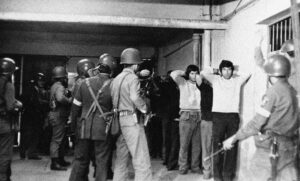
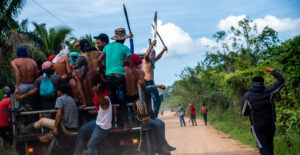
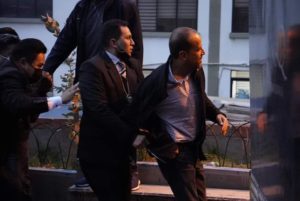
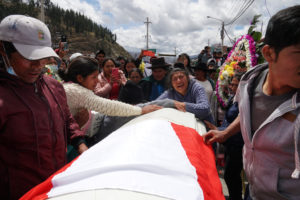
You need to be a supporter to comment.
There are currently no responses to this article.
Be the first to respond.